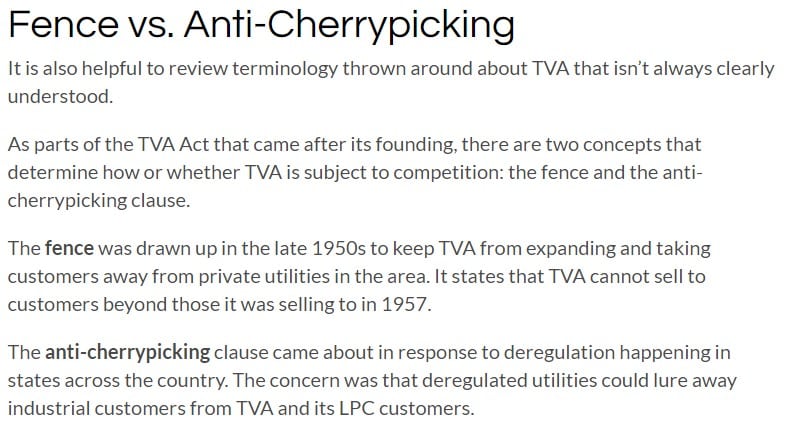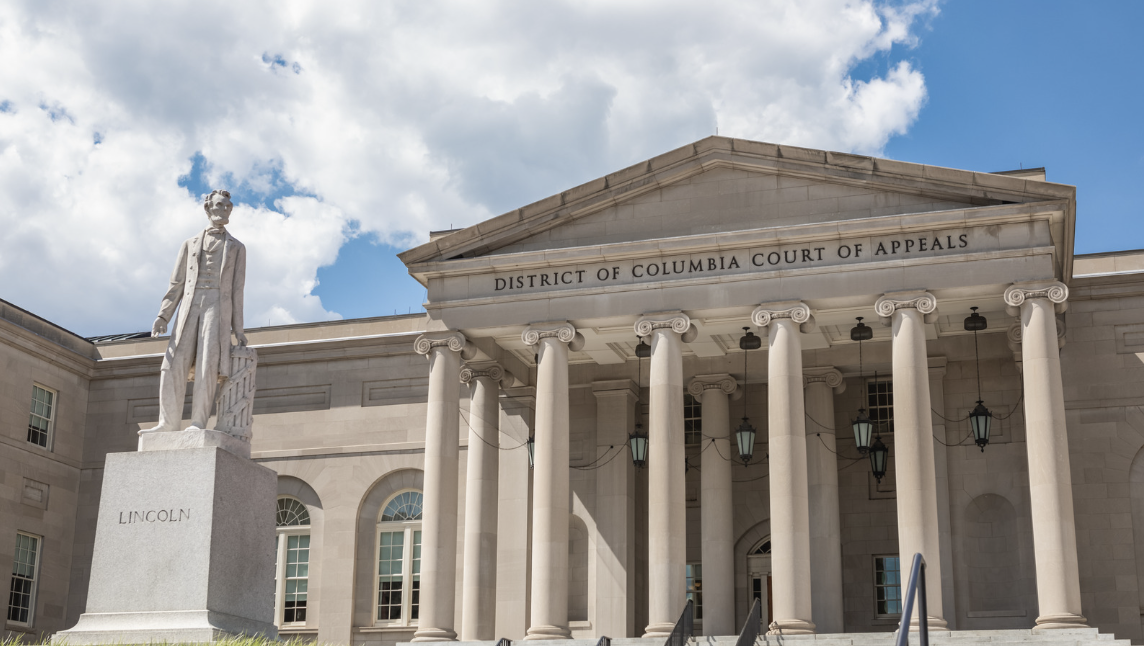Most utilities across the country are required by federal law to provide open access, at fair rates, to their transmission systems. In early 2021 four of the Tennessee Valley Authority’s (TVA’s) utility customers challenged TVA’s claim that it is exempt from that requirement because of federal statutes that establish the “TVA Fence.” The last utility involved in that challenge has withdrawn, but the possibility of another future challenge at the Federal Energy Regulatory Commission (FERC) remains open.

History of the Challenge
In January 2021, four Local Power Companies (LPCs) served by TVA filed a complaint at FERC asking for FERC to require that TVA provide access to its transmission system. The LPCs had already attempted to negotiate with TVA, to no avail. There was a back-and-forth of comments filed on the case throughout February and March of 2021, then the case went silent for many months. Then, in October 2021, in a 3-1 vote, FERC declined to order TVA to provide transmission access.
In February 2022, two of the LPCs appealed FERC’s decision to the DC Circuit Court. Ans now, as of October 20, 2022, both of those LPCs have withdrawn that appeal.

FERC’s Indecision Decision
In FERC’s order, Chairman Glick states that FERC was “exercising [its] discretion under section 211A of the Federal Power Act,” thus indicating that FERC had the authority to make this decision. However, he also states that he does not “believe that Congress intended to give this Commission the authority to ignore the “TVA Fence”… when it enacted the Energy Policy Act of 2005.” It was primarily these seemingly conflicting statements that make this decision so inconclusive.
Glick goes on to say that he thinks Congress should bring down the TVA Fence:

Commissioner Clements, the sole dissenter in the case, was clear in her reason for dissent. She stated that “the Commission has the authority to grant Petitioners’ request for transmission service under section 211A, and because granting their request would be in the public interest.”
Despite the outcome of the vote, three of the four Commissioners wrote about the benefits TVA ratepayers would receive, primarily through lower bills, by requiring at least some level of competition.
Tennessee Representative Introduces Legislation to Open Transmission, Other Reforms
Representative Steve Cohen (TN-9) recently introduced legislation (HR 9042) titled “To amend the Federal Power Act and the Tennessee Valley Authority Act of 1933 to reform the Tennessee Valley Authority’s ratemaking authorities, and for other purposes.”
This bill aims to do the following:
- Require that TVA’s rates and contract be approved by FERC, and not just its own Board of Directors
- Remove both the Fence and anti-cherrypicking provisions of the TVA Act and Federal Power Act, including allowing TVA to make power exchanges with any power-generating organizations (current law limits TVA’s ability to do this based on entities it was trading with in the 1950s)
- State that FERC cannot require TVA to join a Regional Transmission Organization (RTO)
While the FERC case that begin in early 2021 has ended, it is clear from the FERC decision, from what TVA’s own customers want, and from the introduction of this legislation, that the debate over TVA’s exclusionary model will continue. We do not expect a clear resolution in the next year or more, but beyond that timeframe, it is unclear how sturdy the TVA Fence will stand.



